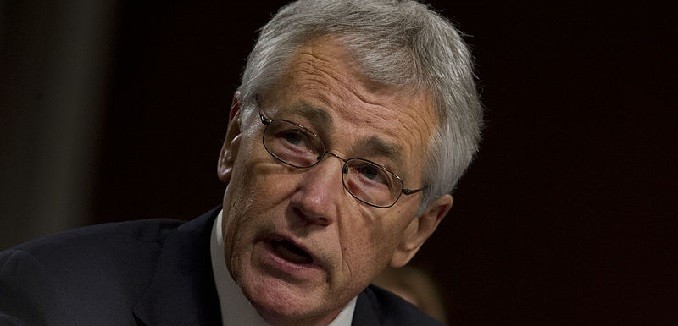On one hand, the United States is acting to limit spillover from the Syrian conflict. Secretary of Defense Hagel announced recently that the U.S. was deploying assets to Jordan to potentially set up “a joint task force for military operations.” As many as 200 troops from Fort Bliss will work with Jordanian forces to “improve readiness and prepare for a number of scenarios.”
On the other hand, Hagel and other Department of Defense officials are urging caution over further U.S. involvement in the violence. At issue is the ability of the U.S. to untangle moderate elements of the Syrian opposition from the hard-line Islamists who increasingly dominate rebel groups. Hagel gestured toward the problem by way of emphasizing that a Syrian war could be “a significant, lengthy, and uncertain military commitment.” Speaking at the same hearing, Joint Chiefs of Staff chairman Gen. Martin Dempsey was more explicit:
General Dempsey acknowledged that last year he had endorsed a proposal by David H. Petraeus, the C.I.A. director at the time, to arm vetted members of the Syrian opposition.
But he said he had rethought that position since then and was no longer sure the United States “could clearly identify the right people” to equip within the ranks of the armed opposition. “It’s actually more confusing on the opposition side today than it was six months ago,” General Dempsey said. While Mr. Kerry said the rebels were making headway, General Dempsey said, “There’s a risk that this conflict has become stalemated.”
The DoD assessments are in line with statements made yesterday to the BBC by Israeli Prime Minister Benjamin Netanyahu, who warned that arming Syria’s rebel forces with advanced weapons such as anti-aircraft missiles may empower hard-line Islamists. Rebels may turn the weapons against U.S. allies, or they may use them to overrun Syrian military facilities and seize portions of Syria’s vast chemical weapons arsenal. The latter scenario would set up Al Qaeda-linked elements to conduct a global terror campaign with Syrian chemical weapons:
Netanyahu also warned of a possible backlash if the international community decides to arm rebel groups. “The main areas of concern to us are the arms that are already in Syria — these are anti-aircraft weapons, these are chemical weapons and other very, very dangerous weapons that could be game-changers,” he said. “They will change the conditions, the balance of power in the Middle East. They could present a terrorist threat on a worldwide scale. It is definitely our interest to defend ourselves, but we also think it is in the interest of other countries.”
Netanyahu committed Israel to acting militarily if necessary to limit the global threat. Portions of Netanyahu’s BBC interview can be viewed here. During the interview Netanyahu says Tehran has “crept up” but not yet crossed the “red line” he described last fall. The assessment is in line with how public sources describe Iranian political calculations relating to the country’s atomic program.




